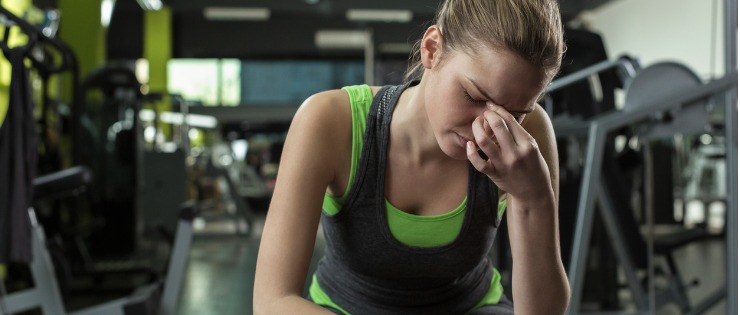
Do you feel that? It’s the subtle breeze that signals the end of yet other scorching summer and the onset of, dare I say it, autumn. An almost imperceptible change, but slowly you adjust your routine as the temps decline; the fan goes down a notch at night, you make the occasional tea, and then before you know it, your stocking up on soup while wearing your Uggs.
The change of season is as inevitable as the flu season that accompanies it, throwing our daily routines into phlegmy disarray. We’re congested, sneezing and feeling more run down as usual, so we should definitely use this as a prime opportunity to bypass our workout, right?
Not so fast, says the science, with research suggesting that exercise may accelerate your recovery.
There’s a common school of thought that suggests strenuous exercise suppresses the immune response, leaving athletes (that’s you by the way!) vulnerable to illness when training.
However new research from the journal Frontiers In Immunology, suggests that the exact opposite may be true. The study, conducted by researchers at the University of Bath, has discovered that during exercise, cells that act as ‘natural killer cells’, boosting immunity, can increase by up to 10 times.
While the level of these cells decreases significantly post exercise, the cells don’t disappear as initially thought by scientists. This misinterpretation is what lead historical studies to suggest that exercise suppresses the immune response, however the cells are simply redistributed to other areas of the body that require more immediate protection following the altered physical state.
“It is increasingly clear that changes happening to your immune system after a strenuous bout of exercise do not leave your body immune-suppressed. In fact, evidence now suggests that your immune system is boosted after exercise,” explained study author Dr John Campbell.
The study goes on to suggest that endurance exercise in particular is going to be one of the most effective methods of boosting immunity, as well as delivering a host of other previously discovered benefits.
“Given the important role exercise has for reducing the risk of cardiovascular disease, cancer and type II diabetes, the findings from our analysis emphasise that people should not be put off exercise for fear that it will dampen their immune system. Clearly, the benefits of exercise, including endurance sports, outweigh any negative effects which people may perceive,” elaborated co-author, Dr James Turner.
So as autumn and winter blow into town this year, steer clear of the chemist as long as you can and instead opt for a run, swim or cycle, a scientifically and financially backed alternate.